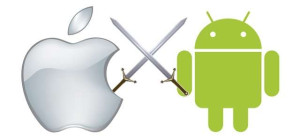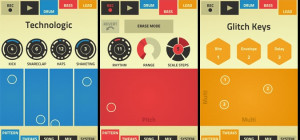[youtube https://www.youtube.com/watch?v=xJkB8PFD-eo]The comparison between platforms to determine which is the securest in terms of privacy and hacking is nothing new. For many years, the robust security features of Blackberry had kept the job of picking a winner really simple. However, ever since it vacated the top spot on the podium, deciding upon the new king has proven to be far more complicated than anticipated. The most highlighted contenders for the throne include iPhone, Android and Windows Phone 8. Do any of them deserve to wear the crown? Has Apple, Google or Microsoft managed to meet, if not surpass, the security standards set by Blackberry? Is there truly a winner? Let us begin our quest for answers to these questions.
Lock-down vs. open-source approach
Unlike Android, which has kept its platform open-source to offer developers the luxury of tinkering with the software with considerable ease, both Apple and Microsoft have stuck with a walled-garden approach. While the latter may have at times come off as a bit suffocating, keeping the walls of their fortresses really high has effectively mitigated the malware threat to a large extent. Empowered by Google's strategic decision to share the source code of its mobile operating system, hackers have had much better luck penetrating through the defenses of Android. The digital padlock in iOS and Windows 8 is not unbreakable, but it puts up far more resistance against intrusion than its counterpart.
The price for popularity
The popularity of Google's Linux-based operating system is obvious from its share of the global mobile market, with both iPhone and Windows Phone 8 well behind. This has resulted in a situation similar to that of Windows and Mac OS, where the former typically attracts far more security threats than the latter due to its large prevalence. Paying a price for its popularity, Android has remained a major target for malware. A study by Juniper revealed that malware threat had increased by 600 percent, with 92 percent of the existing malware having Google's mobile operating system on their hit-list.
iPhones may have struggled to make a decent impact around the globe, but in the US, they have been consistently giving Android a run of its money. As a result, it too has gotten the hackers interested, though it hasn't been that easy for them to attack on it due to Apple's stringent security policies.
Windows phone 8 has been the least targeted phone of the tree, probably owing to the fact that its popularity is far below that of Android phones and iPhones.
[youtube https://www.youtube.com/watch?v=GuJA40Xifio]
The security situation of app stores
If it wasn't for apps, smartphones would have never been able to make a mark in digital communications and that is precisely why the digital distribution platform of Apple, Google and Microsoft have been part of discussions pertaining to the security of their mobile operating systems.
Even though the official app stores for all three platforms have certain security measures in place, Apple and Microsoft have proven from time to time again that they take the security of their official stores far more seriously than Google does. It's not common to stumble across a malicious or glitchy app on App Store of the Windows Phone Store due to the thorough scrutiny measures that have been put in place to filter out apps that can potentially affect user experience in a negative way. Even if a fishy app does manage to sneak through, they are promptly removed once discovered. The official app store for Android, on the other hand, is plagued by plenty of low-quality apps, with some of them managing to stay on the store for weeks or even months before finally getting taken off. The weak filtering system and delayed response indeed showcases Google's leniency towards security, which eventually hurts its customers. As far as third-party apps are concerned, the policy of Apple and Microsoft are far stricter than that of Google, thus contributing to a safer environment for iPhone and Windows Phone 8 users than Android users.
The implications of jailbreak and rooting
Jailbreaking or rooting an iPhone or an Android respectively creates a huge hole in their innate defenses, making them vulnerable to threats that they were previously immune to. With the company-placed restrictions removed, the operating software no longer refuses entry to third-party apps that fail to meet security standards set by Apple and Google. Tinkering with the software for greater freedom also results in the removal of the build-in sandbox feature, which keeps the activities of apps confined to a certain limited space and away from the system files.
Windows Phone 8 doesn't face such a risk so far as the secret to jailbreaking it continues to remain evasive. The software continues to enjoy the protection put in place by Microsoft.
Updates and bug fixes
The complexity of mobile operating software is such that despite all the caution, Google, Apple and Microsoft have consistently failed to put a bug-free firmware in the market. Some of these bugs may be nothing severe, but others are big enough to leave the software and thus users susceptible to all sorts of security threats. However, the damage done by such bugs can easily be controlled through a swift response. Apple did exactly that upon learning about the flaws in iOS 7, releasing not one, not two, but three updates to ensure that all security issues were taken care of. Windows Phone 8 has also received three updates already despite not being plagued by any security-related bug.
As for Android, Google had frequently attracted criticism over its delayed response to identified and even gaping issues in its firmware. However, it has gotten more serious about the security and stability of its operating system in 2013, releasing regular updates and addressing issues that it had long ignored. Its latest firmware, Android 4.4.2 KitKat is undoubtedly the securest iteration of Google's mobile operating system yet. However, owners of old Android devices may have to wait for weeks or even months, if not forever, to enjoy this security.
The Verdict
So which of the three platforms is the securest? With the option of Blackberry missing, Windows Phone 8 is definitely the most deserving of the crown. Microsoft may have had a rough experience with its operating software for computers over the years, but it sure has gotten everything right in the mobile space. There are some performance-related issues with its mobile software, but they fortunately aren't affecting its security, at least not yet. Apple missed out on being the securest due to its rising popularity, especially in the US, which has led to hackers paying more attention to it than they did before. Furthermore, a jailbroken iOS is no less vulnerable than an open-source platform with paper-thin defenses. Android has been making solid progress in the security department, but unless Google makes a dedicated effort to keep malware out of its digital distribution platform and ensure that the security updates reach all devices faster.
Information shared by www.stealthmate.com







